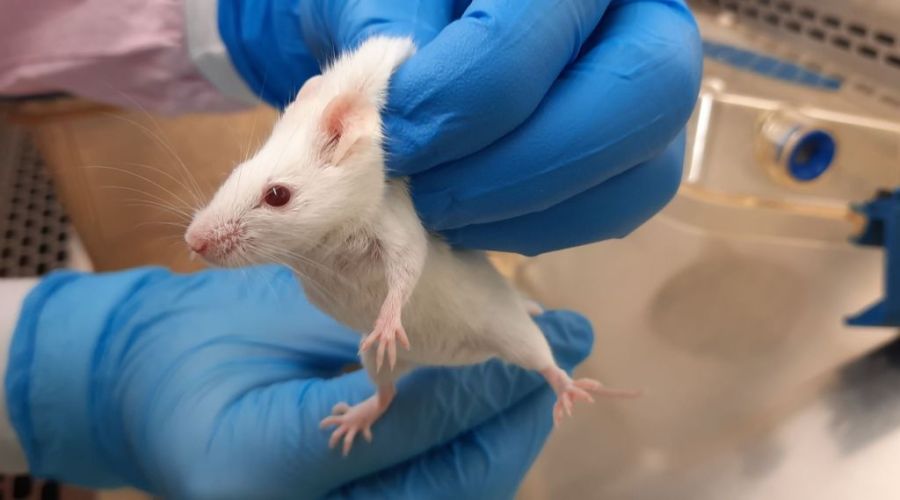Research into a drug to help fight cancer gets a new boost

Cancer cells, which multiply uncontrollably and can invade surrounding tissues and spread to other parts of the body, are often not considered 'sick' by the body and are poorly recognised. However, if the patient's immune system can be directed against such cells, the body is then able to fight them better. Scientists from the University of South Bohemia in České Budějovice (USB) have developed a drug that can do this.
As part of existing research, RNDr. Jan Ženka's team successfully cured 80% of tumours in mouse models. The mice were completely cured thanks to the application of this substance and remained resistant to the same type of cancer even after the retransplantation of tumour cells. This therapy has so far been tested on six types of cancer, including one of the worst, which is thought to be pancreatic cancer. However, according to RNDr. Ženka, it does not matter in principle what type of cancer it is because of the treatment strategy.
Further research and development, including a number of preclinical and clinical studies, are needed for the potential future use of this treatment strategy in humans. However, these steps are extremely challenging both research-wise and financially. USB has therefore decided to seek a suitable collaborator and investor for this project.
‘No university is inherently the right business entity. Therefore, it is common practice to establish companies that are better at this process in order to put ideas into practice,’ says Růžena Štemberková, head of the Technology Transfer Office at USB.
This entity is Bioinova, a.s. As a result of the negotiations, the spin-off company BioCanim, a.s., was established to continue the project and to try to transfer the developed technology into clinical practice. Bioinova is a Czech biotechnology company that conducts its own applied and clinical research in the field of regenerative medicine and tissue engineering. Therefore, in addition to the financial investment, USB has acquired a partner with experience in good manufacturing practices, preclinical research and conducting clinical trials.
‘It is a first for us at the University of South Bohemia and we are duly proud of it,’ adds Růžena Štemberková.
Prof. Hana Šantrůčková, Dean of the USB Faculty of Science, supported the establishment of the spin-off company from the very beginning in order to enable the transfer and adaptation of the technology for clinical practice.
Vice-Rector for Science, doc. Luděk Berec, adds that this project has a significant application potential in the case of positive verification and the establishment of a spin-off company seems to be the only possible way to subject the result of science and research to preclinical and clinical tests and in the case of confirmation of its effectiveness to the form of a commercial product.
If this promising drug proves successful in clinical trials, it could also contribute to cancer treatment on a global scale. Cancers are one of the leading causes of death worldwide, with approximately one in four people in the US, for example, developing cancer in their lifetime and one in five to six dying from it. Conventional treatments (chemotherapy, radiotherapy or newer immunotherapy) extend the life of patients by months on average. We believe that with our new cancer therapy we will be able to not only extend life by years but defeat cancer in patients altogether.